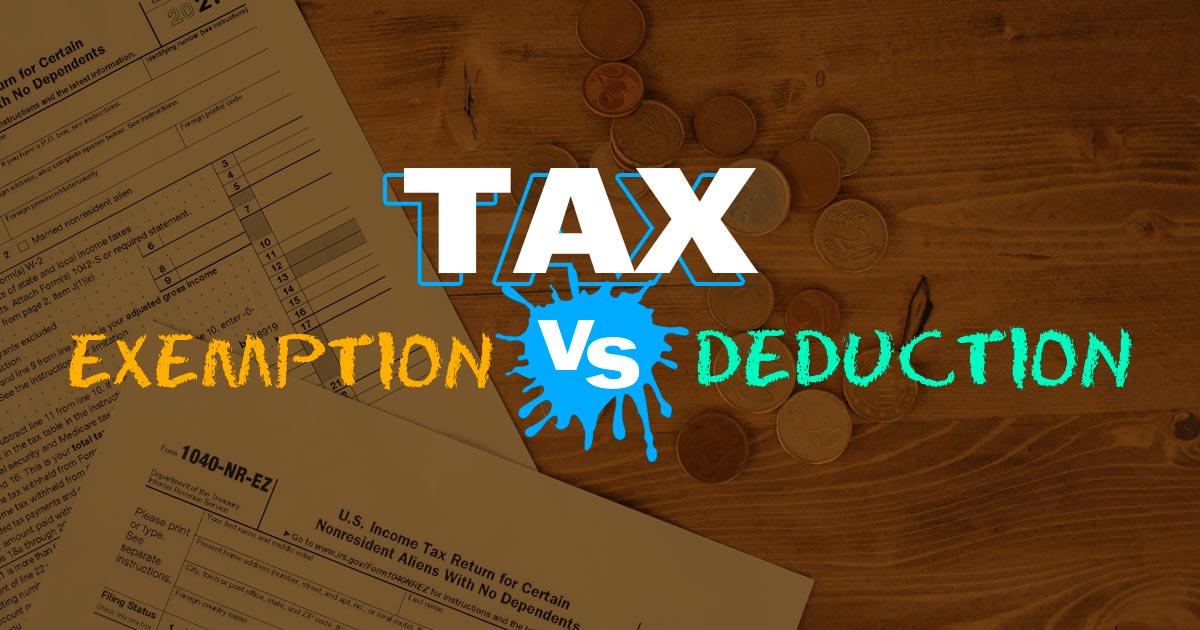Understanding Tax Exemption and Tax Deduction Distinctions
It is not uncommon to confuse similar-sounding technical terms when discussing income taxes, particularly in explaining the difference between tax deductions and exemptions.

However frequently interchangeable they may be, these reductions have different bases and structures. Knowing how they differ might help you figure out what you owe and what credits you can claim.
Tax Exemptions
Some types of income are exempt from taxation, not all your earnings. This means that some gains are not taxable; it is like when fresh meat and produce are not taxed separately at the grocery store checkout but the whole amount remains taxable.
Tax exemptions have ancient roots dating back to biblical times when King Saul provided them, and they have continued evolving along with modern tax laws.
Scenarios for exemption
Lottery winnings (except most state lottery winnings), gifts, inheritances, some union strike money and life insurance payouts are considered federally untaxed sources of income for most people; however there may be exclusions depending on individual circumstances. Benefits such as welfare payments or alimony received by one ex-spouse from another are still nontaxable even though interest earned on previously untaxed cash is now subject to tax.
Business Exemptions
Employer-provided benefits like housing or food may be excluded from taxation up to certain limits; nevertheless there can arise complexities surrounding worker’s compensation or disability insurance premiums paid by employers.
Tax Deductions
On the other hand, tax deductions reduce taxable income thereby reducing the amount owed in taxes. They are sometimes called “tax write-offs,” and personal expense reimbursements are only a subset of the larger category of deductible expenses.
Situations for Deduction
Examples include travel incurred while carrying out work-related activities outside one’s regular commuting area as well as partial write-offs for computers used partly for business purposes among other things. With more people working remotely than ever before utility bill offsets against home office rental costs form part of new deductions available.
Document Management
It is important to keep good records to support your claims for deduction and prepare for future audits especially given changing employment patterns.
Recognising Tax Credits
Tax credits directly reduce tax bills once the total liability has been determined, unlike exemptions or deductions. They offer different levels of reimbursement and come in refundable, nonrefundable, and partly refundable forms.
Consulting Professionals
Accountants or financial advisors can help people navigate through complex areas of the tax code while potentially unlocking savings on household medical workplace or educational expenses. Their advice during tax season could lead to maximum savings with simplified calculations for taxes owed.






